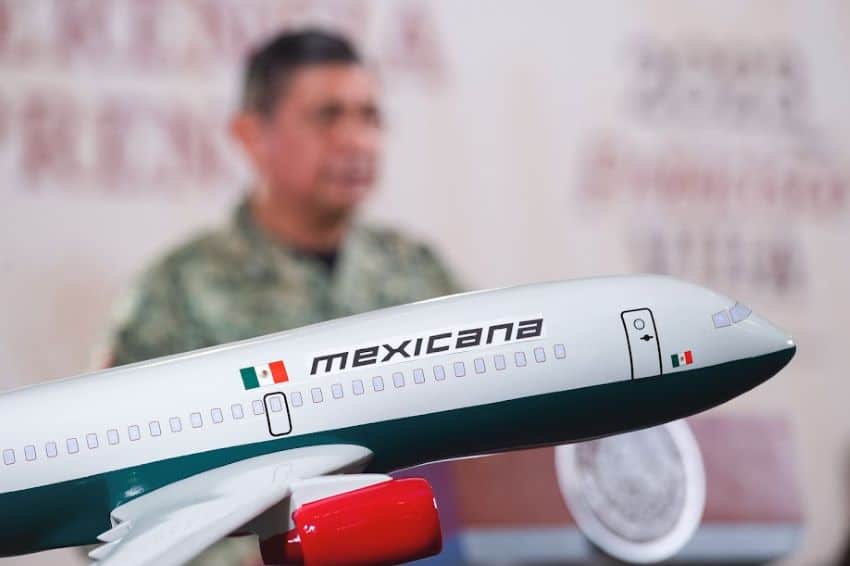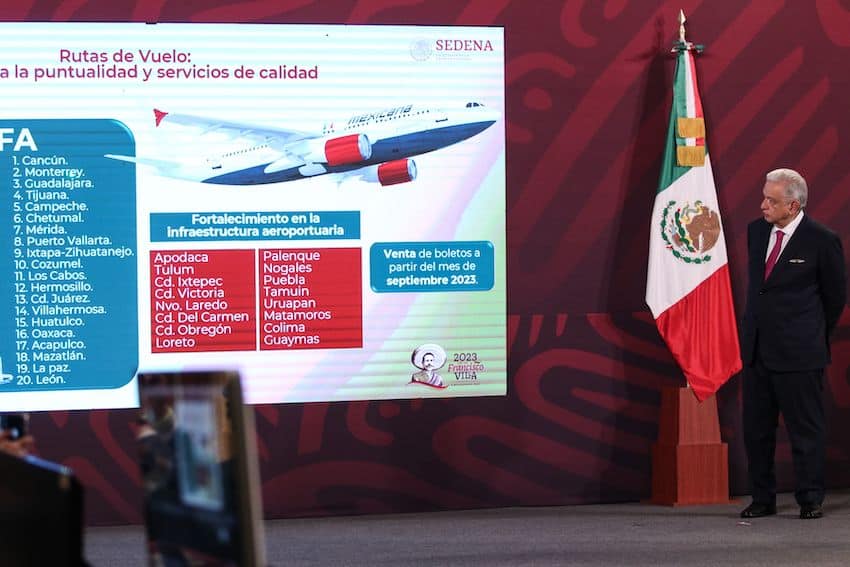Mexicana airline unveils website and first routes

The government-operated Mexicana de Aviación airline has revealed its new website and first 20 national destinations. It is scheduled to launch operations in December this year.
The new airline will offer travelers the choice of three major destination types – “beach,” “adventure” and “business.” Tickets will be 18 to 20% cheaper than major domestic rivals, including Volaris, VivaAerobus and Aeroméxico, the company announced.
The beach destinations include many of Mexico’s most iconic resort towns; Acapulco, Cancún, Cozumel, Huatulco, Ixtapa/Zihuatanejo, La Paz, Los Cabos, Mazatlán and Puerto Vallarta.
Meanwhile, “adventure” flights will take travelers to Chetumal, Hermosillo, Mérida and Oaxaca. Business travelers will be able to fly to Bajío International Airport in León, Guanajuato, as well as regional business centers Tijuana, Ciudad Juárez, Guadalajara, Monterrey and Villahermosa.
The air carrier, which has bought the rights to the former Mexicana de Aviación brand, will operate hubs from both the Felipe Ángeles International Airport (AIFA) in Mexico City and the new Tulum airport, which is expected to open later this year.
Mexicana has also announced that it will not charge for checked baggage weighing under 15 kilograms, and will offer free seat selection and complimentary beverages during its launch period. It will operate a modern fleet of 10 Boeing 737-800 series aircraft, with the first three expected to be delivered as early as next week, according to the news website Infobae.

In a statement on its website, the airline said it aims to “provide air transportation services … to everyone, with high standards of safety, trust and quality, while promoting the social and cultural values of Mexico.”
The airline hopes to achieve a 6% share of the domestic travel market and will employ less than 410 employees at launch. The military-run Olmeca-Maya-Mexico group, which owns the airline, will also operate both AIFA and the new Maya Train project, also scheduled to begin service in December.
With reports from Infobae and El Financiero
Source: Mexico News Daily

